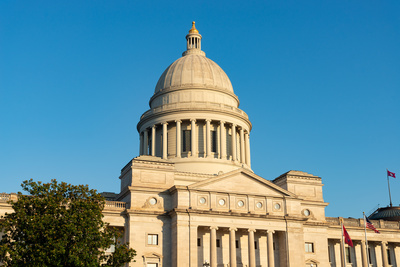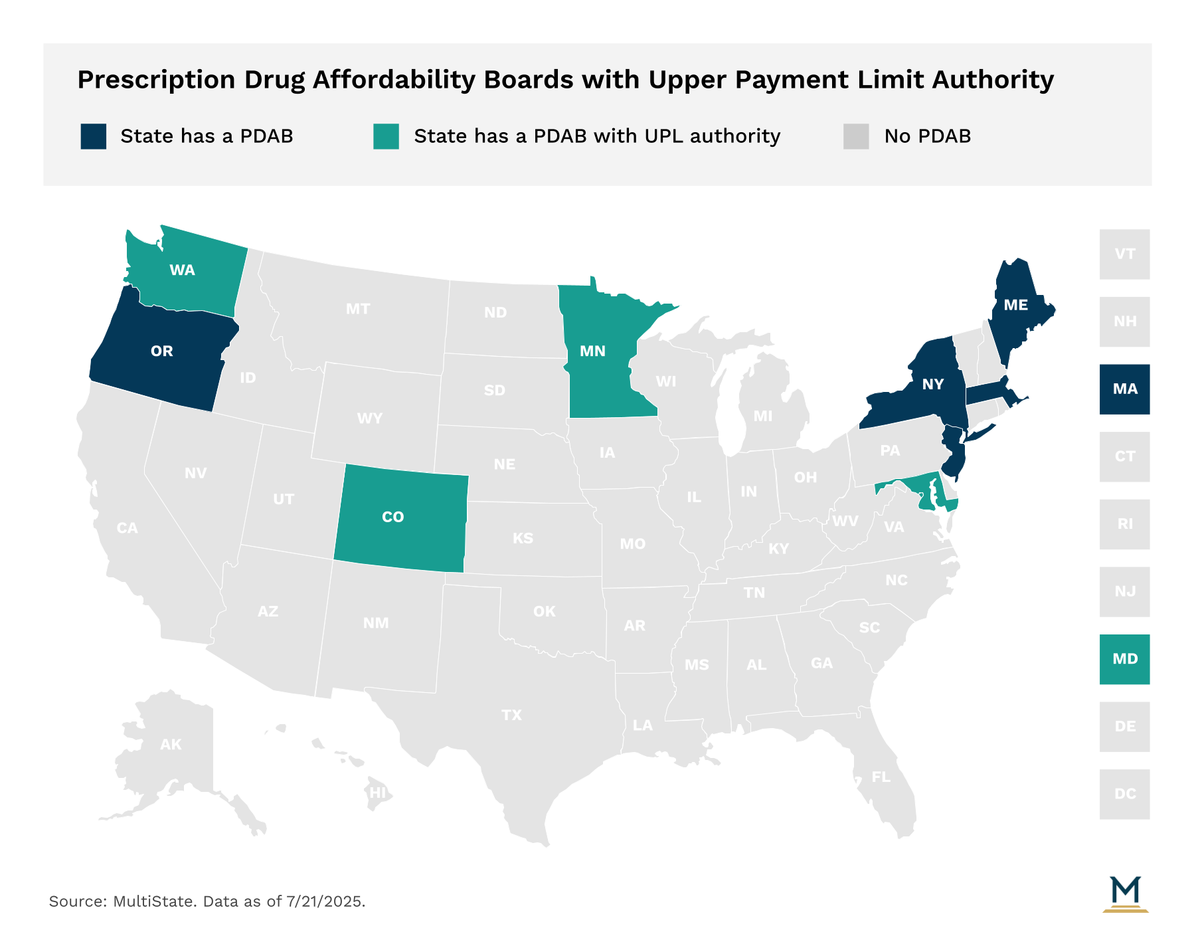
Health Care & Wellness
Pharmacy Benefit Manager (PBM) Legislation Tackled Ownership Restrictions, Transparency, and More in 2025
January 27, 2026 | Lisa Kimbrough
July 30, 2025 | Mary Kate Barnauskas

Key Takeaways:
Currently, nine states have active Prescription Drug Affordability Boards (PDABs) or similar drug cost control entities. PDAB authority varies across states, and can include developing reports and policy recommendations, setting prescription drug spending benchmarks, conducting affordability or cost reviews on eligible drugs, or setting upper payment limits (UPLs).
PDABs in four states (Colorado, Maryland, Minnesota, and Washington) have the authority to set UPLs on prescription drugs they determine to be unaffordable after review. Currently, no states have implemented a UPL, but Colorado is in the rulemaking process for their first UPL. Notably, in March, a judge dismissed a lawsuit against the Colorado PDAB from a manufacturer of a drug selected for a UPL.
This year, no new states enacted PDAB legislation, though states with existing PDABs took action to refine, expand, or reconsider their role in addressing prescription drug affordability. These different approaches reflect the ongoing and contentious debate at the state level over how to best address drug pricing policy. As PDABs move towards implementation, particularly around UPLs, and the legal landscape continues to evolve, states are likely to keep debating the role and impact of PDABs on the drug pricing policy.

Maryland took significant action to expand its PDAB’s authority with HB 424/SB 357. The PDAB was previously authorized to set UPLs for public payers, but under the new legislation, the PDAB is authorized to set UPLs for all purchases and payer reimbursements in the state. The law also expands the Stakeholder Advisory Council, requires additional criteria to be considered when setting UPLs, including the impact on drug shortages and the 340B drug pricing program, and adds new reporting requirements on UPLs.
Changes to Maine’s PDAB are still pending. At the end of session, the legislature enrolled LD 697 to broaden the PDAB’s role beyond setting spending targets for public plans. The bill directs the board to assess and recommend various strategies to reduce prescription drug costs and barriers, including UPLs, pharmacy benefit manager regulation, and reference-based pricing. However, Governor Janet Mills (D) opted to delay action on LD 697, along with 60 other bills, until lawmakers return to session in January 2026. At that time, she will have three days to sign, veto, or allow the bill to become law without her signature.
Meanwhile, in Oregon, the legislature opted to focus on refining the PDAB’s statute rather than expanding its authority with SB 289. The bill enacts several technical changes to the PDABs statute that were identified in their annual report to the legislature. The changes include shifting the Department of Consumer and Business Services’ reporting schedule to the PDAB from quarterly to annually, adjusting the board’s mandate to identify unaffordable drugs from a fixed number of nine to a more flexible “up to nine,” and modifying the board’s reporting requirements related to the generic drug market. Currently, the PDAB has the authority to review drugs, but cannot set UPLs. In 2024, the PDAB published a statutorily required report on UPLs. The report was discussed by the Senate Interim Committee on Health Care in December 2024, but the Chair of the Senate Health Care Committee, Deb Patterson (D), opted not to pursue UPL legislation, citing a lack of consensus from the PDAB on a UPL approach.
While some states are moving to strengthen their PDAB frameworks, others are rejecting or repealing them. In Virginia, Governor Glenn Youngkin (R) vetoed HB 1724, which would have established a PDAB with authority to set UPLs. This marks the second consecutive year he has vetoed similar legislation. In his veto message, Governor Youngkin reiterated his concerns about the potential negative impact of UPLs on patient access and medical innovation.
New Hampshire made the decision to eliminate its PDAB as part of cuts made in the state’s budget legislation (HB 1 & HB 2). Similarly, Ohio eliminated its Prescription Drug Transparency and Affordability Advisory Council as part of its budget bill. The council had been inactive since 2021, though topics related to its work could still have been addressed by the Joint Medicaid Oversight Committee.
StateVitals is the leading resource on how state governments are shaping healthcare policy and transforming care and delivery, brought to you by MultiState’s Health Care Policy Practice. MultiState’s policy and advocacy professionals are uniquely positioned to give you and your organization the big-picture view on state health policy reform, plus the latest trends on how policymakers are thinking about healthcare and similar emerging issues. Learn more about StateVitals, or schedule a demo here.

January 27, 2026 | Lisa Kimbrough

January 27, 2026 | Amber Thyson

January 23, 2026 | Mary Kate Barnauskas